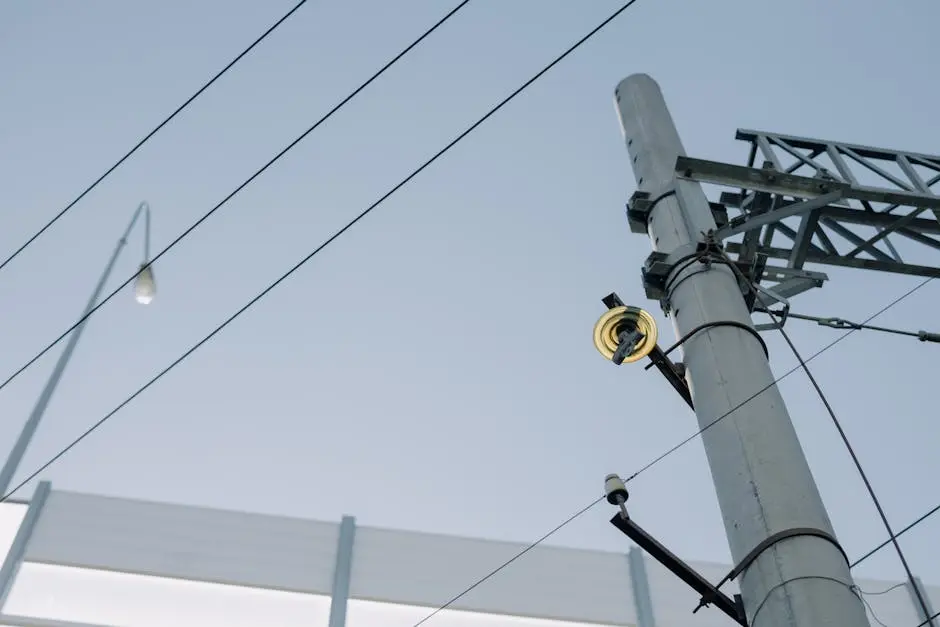
The Importance of Battery Cables in Industrial Settings
Share
In the vast world of industrial machinery and equipment, the role of battery cables often goes unnoticed. These unassuming components are the backbone of efficient and safe power distribution in a myriad of settings. In this blog, we’ll delve into why battery cables are more crucial than we might realize.
Understanding the Basic Function of Battery Cables
Battery cables are fundamental to powering industrial equipment. They transfer energy from one source to another, ensuring that machines run smoothly without interruptions. Without proper functioning battery cables, the reliability of industrial equipment can be seriously compromised.
At the heart of every efficient industrial operation lies an often-overlooked component: the battery cable. These cables are critical in connecting energy sources to the equipment that powers large-scale functions. Without them, efficient electricity flow would be hindered, causing potential delays and disruptions. Over time, businesses have come to understand that having the proper battery cables can often be the deciding factor in maintaining smooth and uninterrupted operations. Interestingly, battery cables like the 1GA Battery Cable Black blend strength with flexibility, ensuring robust transfer of power while allowing for ease of installation regardless of the complexity of industrial environments.
The selection of the right battery cable often begins with understanding the specific power requirements of your machinery. For instance, in scenarios where industrial machinery requires high electrical loads consistently, a battery cable such as the 1/0GA Battery Cable Black might be better suited. These cables are built for handling substantial power transfers without compromising efficiency. Their design takes into account the heavy-duty needs of the machinery, ensuring that energy flows efficiently without resistance losses, which are common in lesser quality cables. This rational choice ensures minimal disruptions in operations due to energy inefficiency.
The Critical Role of Quality in Industrial Battery Cables
In industrial environments, heavy-duty battery cables are necessary to withstand harsh conditions. Quality cables minimize the risk of electrical failures and enhance performance. Choosing the right cables can significantly impact overall operational efficiency.
Quality is non-negotiable when it comes to industrial battery cables, as they encounter extreme conditions daily. The cables must be equipped with features such as full-gauge copper conductors and durable PVC insulation, both instrumental in maintaining optimal conductivity and lasting protection against harsh environments. The Can Battery Cables Influence Industrial Equipment Efficiency? article reveals the underestimated influence battery cables have on industrial efficiency. High-quality cables help maximize productivity by reducing energy waste, which not only saves costs but also preserves the integrity of equipment by preventing power fluctuations.
Common Issues and How to Prevent Them
Common issues such as corrosion, improper connections, and wear and tear can lead to significant downtime. Regular inspections and maintenance can prevent these problems, ensuring that machines function at their best and reducing the likelihood of costly repairs.
One of the prevalent challenges in maintaining battery cables is corrosion. Corrosion can occur due to exposure to moisture and chemicals, compromising cable integrity and increasing resistance. This highlights the importance of cables with advanced durability features. Cables with robust PVC insulation, such as those offered by the Electrical Supply Center, provide excellent protection against corrosive elements. Regular inspections can identify early signs of wear and tear, enabling timely maintenance or replacement before larger issues arise. Effective prevention is not only about extending the cable life but also about guaranteeing the overall safety of industrial operations.
Proper connection and fitment are also crucial to avoid common issues with battery cables. Improperly sized or incorrectly connected cables can result in loose connections, leading to poor contact and eventual machinery malfunctions. Ensuring meticulous installation practices mitigates such risks. Furthermore, conducting routine safety checks and ensuring that connections are tight and cables are free from physical damage can prevent hazards. Another preventive measure involves maintaining a clean environment around the cables to prevent buildup of dirt and debris, which could impact connectivity. Implementing these steps can avert potential failures and ensure consistent power flow in industrial operations.
Innovations and Advancements in Battery Cable Technology
Recent advancements in battery cable technology offer enhanced durability and efficiency. Manufacturers are now focusing on producing cables that can handle higher electrical loads while maintaining flexibility and reliability, making them better suited for demanding industrial applications.
Innovation is driving significant improvements in battery cable technology, combining high current capacities with remarkable resilience. Today’s cables are engineered to meet stringent SAE J1127 and SAE J378 standards, ensuring they withstand the toughest industrial challenges. Modern cables incorporate cutting-edge materials designed to enhance longevity and performance. For instance, advancements in insulation technology have resulted in cables that resist environmental threats such as temperature extremes and oil exposure, which are common in industrial settings. These innovations not only extend the lifespan of cables but also optimize power transfer efficiency, contributing to reduced energy costs and maximizing operational output.
Another noteworthy advancement is the development of cables with improved flexibility without compromising strength. Flexible cables allow easier installations and facilitate better maneuverability within tight spaces. This adaptability is crucial for complex industrial settings where equipment configurations may frequently change. As flexibility increases, so does the ease of handling and the safety of installation procedures, reducing the chances of cable damage. Additionally, the ongoing research into eco-friendly materials for insulation and conductors promises a future where battery cables meet performance needs while aligning with sustainability goals, reflecting an industry movement towards greener and more responsible manufacturing practices.
Summing Up the Essential Role of Battery Cables
In conclusion, battery cables in industrial settings are not just a part of the machinery; they are vital to the entire operation’s efficacy and safety. By understanding their significance and maintaining them effectively, businesses can ensure uninterrupted operations and safeguard valuable equipment.

